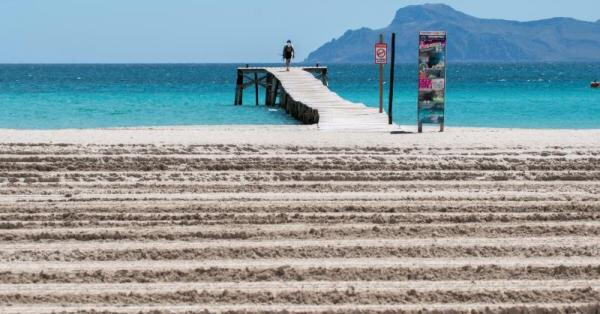A prominent academic in the Campo de Gibraltar said yesterday that “Spain is not ready for a no deal scenario”.
In a column in Europa Sur newspaper, Dr Jesus Verdu, a lecturer at the University of Cadiz and vice-rector of its Campo de Gibraltar campus, took issue with recent statements by Spain’s Minister for Foreign Affairs.
Mr Albares said Spain and the European Union “are ready for any scenario” in the treaty talks on Gibraltar’s post-Brexit relations with the bloc, even while stressing his government “does not want” no deal.
But on Thursday, Dr Verdu echoed concerns raised earlier this week by Manuel Triano, the head of the Comisiones Obreras [CCOO] union branch in the Campo, and said Mr Albares was mistaken to say the Campo was ready for no deal.
“Perhaps, from the distance of the ministry and in absolute theoretical terms, it is possible to defend that position,” Dr Verdu wrote.
“From the reality of the Campo de Gibraltar, the perspective is completely different.”
Mr Verdu said there had been sufficient time since the June 2016 referendum to “study, identify, define and try to anticipate and address” the negative impact of Brexit.
“It seems obvious that, given the consequences [of Brexit] across the EU, the two affected land borders would suffer the impact of leaving [the EU] with greater intensity,” he wrote.
Mr Verdu said Spanish authorities, in particular the state and the Junta de Andalucia, had not “planned adequately” or provided measures to mitigate the impact of Brexit on the Campo economy, which he said was heavily dependent on the Gibraltarian economy.
Even before Brexit, the Campo was “saddled” with the dual challenges of being a border area with a long-standing deficit in public investment.
“If there is no agreement, and given the lack of strategic planning by Spanish authorities, the Campo de Gibraltar will continue to be a territory with few opportunities; with the highest unemployment levels in Spain; 19th-century communication links that are totally obsolete; cross border workers in precarious conditions; [and] lamentable public services, [an area that is] easy prey for smuggling networks and illicit traffic,” he wrote.
“Of course, the agreement is not a magic wand that will resolve these shortcomings if the state and the Junta continue to forget this area, but without an agreement everything will be worse.”
“So no, Mr Minister, we are not prepared.”
Earlier this week, CCOO’s Mr Triano said a “bad decision” in the Gibraltar treaty negotiation would hit workers and companies in the Campo de Gibraltar that rely on Gibraltar for their livelihoods, adding a ‘no deal’ outcome would be “a socioeconomic catastrophe”.
And yesterday, an MP for Ciudadanos tabled a question in the Spanish Congress asking the Spanish Government what steps it was taking to cushion the impact of no deal on the Campo, including whether it would provide financial assistance.
Maria Carmen Martinez Granados cited research by the Elcano Institute which calculated that around 18.5% of the Campo’s GDP just before Brexit was generated by interactions with Gibraltar, adding that the area was one of the main economic engines in the Cadiz province economy.
She urged the government to reach an agreement soon to “leave behind the uncertainty over the relations between the Campo de Gibraltar and the Rock” and that this was “key for the future of this area, its residents and everyone in Cadiz [province]”.
She also asked for details on the state of the treaty negotiation and whether any agreement would be debated and voted on in the Spanish parliament before its ratification.

